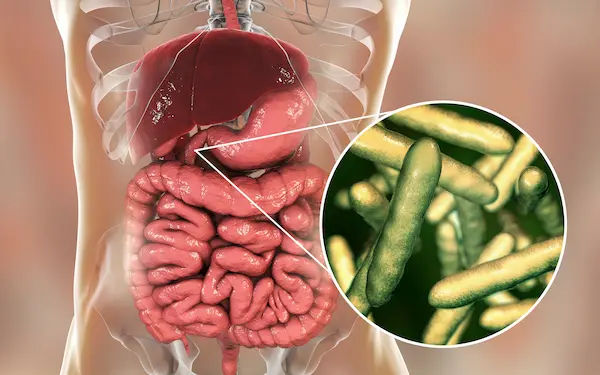Coronary Artery Disease Overview
Explore coronary artery disease (CAD), its causes, risk factors, symptoms, and treatment options. Learn how early detection and proper management can help prevent heart attacks and improve heart health.

Written by Dr. Rohinipriyanka Pondugula
Reviewed by Dr. D Bhanu Prakash MBBS, AFIH, Advanced certificate in critical care medicine, Fellowship in critical care medicine
Last updated on 22nd Aug, 2025

Coronary Artery Disease (CAD) is a common heart condition that affects millions of people worldwide. If you or a loved one has been diagnosed with CAD, it’s natural to have questions and concerns. This guide will help you understand what CAD is, its symptoms, causes, and how you can manage it effectively.
What is Coronary Artery Disease (CAD)?
Coronary Artery Disease occurs when the blood vessels (coronary arteries) that supply oxygen-rich blood to your heart become narrowed or blocked. This happens due to a buildup of cholesterol, fat, and other substances (called plaque) inside the arteries. Over time, this can reduce blood flow to the heart, leading to chest pain (angina), shortness of breath, or even a heart attack.
What Are the Symptoms of CAD?
CAD symptoms can vary from mild to severe. Some people may not experience any symptoms until the disease has progressed. Common signs include:
Chest pain (angina) – A feeling of pressure, tightness, or heaviness in the chest, often triggered by physical activity or stress.
Shortness of breath – Difficulty breathing, especially during exertion.
Fatigue – Feeling unusually tired, even after minimal activity.
Heart attack symptoms – Severe chest pain, pain spreading to the arm, neck, jaw, or back, nausea, sweating, and dizziness.
If you experience any of these symptoms, especially chest pain, seek medical help immediately.
Consult a Top Cardiologist
What Causes CAD?
Several factors contribute to the development of CAD, including:
High cholesterol – Excess LDL ("bad" cholesterol) can lead to plaque buildup in arteries.
High blood pressure – Puts extra strain on the heart and arteries.
Smoking – Damages blood vessels and accelerates plaque formation.
Diabetes – Increases the risk of artery damage.
Obesity & inactivity – Lack of exercise and excess weight contribute to heart disease.
Family history – A genetic predisposition can increase risk.
Age & gender – Men over 45 and women over 55 are at higher risk.
How Does CAD Affect Your Health?
If left untreated, CAD can lead to serious complications, such as:
Heart attack – A complete blockage in a coronary artery can cut off blood supply to part of the heart.
Heart failure – Weakened heart muscles may struggle to pump blood effectively.
Arrhythmias (irregular heartbeats) – Poor blood flow can disrupt heart rhythm.
The good news is that with proper care, many people with CAD can lead healthy, active lives.
How Can You Manage CAD?
While CAD is a serious condition, lifestyle changes and medical treatments can help manage it effectively.
1. Healthy Eating
Choose a heart-healthy diet rich in fruits, vegetables, whole grains, and lean proteins.
Reduce saturated fats, trans fats, salt, and sugar.
Include omega-3 fatty acids (found in fish, flaxseeds, and walnuts) to support heart health.
2. Regular Exercise
Aim for at least 30 minutes of moderate exercise (walking, swimming, cycling) most days.
Consult your doctor before starting a new exercise routine.
3. Quit Smoking & Limit Alcohol
Smoking damages arteries, quitting can significantly improve heart health.
Limit alcohol to 1 drink per day for women, 2 for men.
4. Manage Stress
Practice relaxation techniques like deep breathing, meditation, or yoga.
Stay socially active and engage in hobbies you enjoy.
5. Medications & Medical Treatments
Your doctor may prescribe:
Cholesterol-lowering drugs (statins)
Blood pressure medications
Aspirin or blood thinners (to prevent clots)
Procedures like angioplasty or bypass surgery (for severe blockages)
When Should You See a Doctor?
If you experience:
Chest pain or discomfort
Unexplained shortness of breath
Extreme fatigue
Symptoms of a heart attack
Don’t wait, seek medical help immediately.
Take Control of Your Heart Health with Apollo 24|7
If you’re concerned about CAD or need expert advice, Apollo 24|7 offers easy online consultations with top cardiologists, diagnostic tests, and personalized treatment plans. You can:
Book a heart health check-up
Consult a specialist from home
Get lab tests done at your convenience
Your heart health matters, take the first step today!
Conclusion
Coronary Artery Disease is manageable with the right care and lifestyle changes. By eating well, staying active, and following medical advice, you can protect your heart and live a fulfilling life. If you have any concerns, don’t hesitate to reach out to a healthcare professional.
Consult a Top Cardiologist
Consult a Top Cardiologist

Dr. Anand Ravi
General Physician
2 Years • MBBS
Bengaluru
PRESTIGE SHANTHINIKETAN - SOCIETY CLINIC, Bengaluru

Dr. Tripti Deb
Cardiologist
40 Years • MBBS, MD, DM, FACC, FESC
Hyderabad
Apollo Hospitals Jubilee Hills, Hyderabad
Dr Moytree Baruah
Cardiologist
10 Years • MBBS, PGDCC
Guwahati
Apollo Clinic Guwahati, Assam, Guwahati

Dr. Zulkarnain
General Physician
2 Years • MBBS, PGDM, FFM
Bengaluru
PRESTIGE SHANTHINIKETAN - SOCIETY CLINIC, Bengaluru

Dr Nazneen Khan
Cardiologist
7 Years • M.B.B.S, M.D (MEDICINE), DrNB CARDIOLOGY
Pune
Apollo Clinic, Viman Nagar, Pune




